Wi
Wickremasinghe, Cyril Esmond Lucien (1920-1985)
Party pseudonym: Buultjens.
Born Ceylon, son of C.L. Wickremasinghe, CCS and Esme Goonewardene. Educated Ceylon University College and Ceylon Law Collge, Hulftsdorp. Joined Lanka Sama Samaja Party while a student. President, University Students’ Union. Qualified as advocate, 1946. Quit LSSP, 1947. Married Nalini Wijewardene, daughter of the Lake House baron Don Richard Wijewardene. Named Managing Director, Associated Newspapers of Ceylon Ltd., 1950. Chairman, International Press Foundation, 1966-68. Son, Ranil (b. 1949), became UNP Prime Minister, 1993-94 and 2001-04, and Leader of the Opposition, 1998-2005.
Compiled by Charles Wesley Ervin
Harry Moore Wicks (1889-1956)
American radical journalist and politician who was a founding member of the Communist Party of America.
Harry M. Wicks is one of the most enigmatic leaders of the early American communist movement. Wicks was born in Arcola, Illinois on December 10, 1889, the son of an electrical engineer. Little is known about his early years.
Wicks was an adherent of the John Keracher’s Proletarian University tendency in the Socialist Party of Michigan from 1916.
Wicks was the candidate of the Socialist Party for the US House of Representatives in the Oregon 3rd District in Nov. 1918. Early the next year he ran for the SPA’s governing National Executive Committee,finishing 2nd out of 28 candidates under partial returns.
Wicks was a delegate to Founding Convention of Communist Party of America and on the 9 member committee which wrote the CPA Program in 1919. The founding convention elected Wicks to the Central Executive Committee of the CPA, which in turn elected him to its governing inner circle, the Executive Council.[1] Wicks was the only member of the Michigan tendency to accept office in the new CPA. He also served as Associate Editor of the party’s official organ, The Communist. Wicks was jailed in Nov. 1919 in connection with these activities as part of the Justice Department’s crackdown on members of the Communist Party.
In 1920, Wicks rejoined his Michigan comrades when he became a member of the Proletarian Party of America, serving on the governing National Executive Committee of that organization. Wicks was the fraternal delegate of the PPA to the founding convention of the Workers Party of America in Dec. 1921, but he came as a foe rather than a friend, engaging in a bitter criticism of that organization. After the Proletarian Party’s decision to support the legal arm of the Central Caucus faction’s “Communist Party of America&38221; in 1922, Wicks was named as the editor of the organ of this "United Toilers of America," The Workers’ Challenge.
Wicks joined the Workers Party following the liquidation of the Central Caucus split in the fall of 1922 and served on the CEC of WPA from 1922 to 1923. He also served on the editorial board of The Worker during that same period. In 1923 Wicks was named National Organizer of the WPA and conducted a 5 week East Coast speaking tour in Sept.-Oct. 1923.
Wicks was first accused of being a spy in 1923, charged with having denounced Communist Labor Party founding member Victor Saulit to immigration authorities while both were members of the Socialist Party of Oregon. A WPA inquest commission cleared Wicks of this charge, however.
Wicks was a delegate to the 3rd Convention of the WPA in 1923 and was a consistent backer of the Pepper-Ruthenberg faction. In 1928 Wicks was a delegate to the 6th World Congress of the Comintern. He remained in Moscow for a year as North American representative to the Profintern. Thereafter, Wicks was sent to Australia and various Asian countries as a Comintern Representative.
Wicks returned to the United States in the middle 1930s, standing as the CPUSA candidate for US Senate from Pennsylvania in 1934. In 1937, Wicks was expelled from the party. Wicks returned to the United States in the middle 1930s, standing as the CPUSA candidate for US Senate from Pennsylvania in 1934. In 1937, Wicks was expelled from the party. Wicks moved to Chicago and worked there as a typesetter until his death in 1956.
Oakley C. Johnson, of the Socialist Party of Michigan and later the CPUSA, was a critic of his views and personality traits.
Wicks moved to Chicago and worked there as a typesetter until his death in 1956.
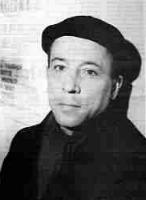
Widgery, David (1947-1992)
David Widgery was a loyal but extremely heterodox member of the British IS and then the SWP from the late 1960s until his tragic early death in 1992.
He had a wide range of interests and activities. From his youth a cultural radical he wrote not only for the revolutionary press but also for the underground press of the late 1960s, editing one issue of the famous underground magazine OZ as well as writing regularly for Socialist Worker and International Socialism.
He was from the beginning a campaigner for women’s liberation (one of the few men actually invited to attend the First Women’s Liberation Conference at Ruskin College, Oxford in 1970) and was one of the first advocates of gay liberation in the left press in Britain.
After qualifying as a doctor, despite involvement in a bewildering variety of campaigns during his studies, he became an activist around health issues and a campaigner against welfare cuts, first as a hospital doctor and then as a general practitioner in London’s East End. Despite a gruelling timetable due to his demanding work he nevertheless found time to be one of the founder members of Rock Against Racism in the mid-1970s. Along with the Anti-Nazi League RAR played an important role in ensuring that the National Front (a fascist organisation) was beaten back. In particular it intervened in the emerging punk scene, where many leading lights initially used swastikas as a provocation against good taste, and ensured that it became dominated by anti-racist and anti-fascist ideas. By its integration of reggae it ensured a cross-over which eventually resulted in the development of Two-Tone, committed anti-racist and anti-Conservative music that brightened up the dark days of Thatcherism in the 1980s.
Not only was he an activist, he was also a chronicler of the movement, particular his collection “The Left in Britain 1956-1968” and “Beating Time,” his history of RAR and the fight against the NF. But he also chronicled the movement in a wide range of magazines and papers ranging from the British Medical Journal (about as Establishment as you can get) via New Statesman and New Society, Time Out and City Limits to Socialist Worker, Freindz and INK. Among his other works are a number of heavyweight analyses of the politics of health and particularly of the National Health Service in Britain, numerous short pieces on culture and descriptive writing of aspects of working class life that have rarely been captured so brilliantly. He was one of the finest left writers in Britain ever.
See the David Widgery Archive.
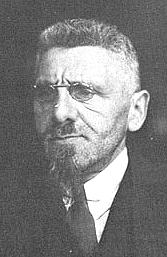
Wijnkoop, David (1876-1941)
Leading figure in the Dutch Social Democratic Workers Party, he founded the SDP after a split in 1909. During the war he supported the Zimmerwald Left, and in 1918 formed the CP. A ‘left’ Communist, he attempted to set up a centre for ‘leftism’ in the Amsterdam Bureau before the Second Congress of the Communist International in August 1921. In 1926, he was expelled from the Communist Party, unsuccessfully appealing to the Comintern in 1928. In 1930, however, he was re-instated, and thereafter followed the Stalinist line.
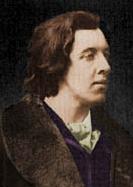
Wilde, Oscar (1854-1900)
Irish poet and playwright.
Oscar Fingal O'Flahertie Wills Wilde was born in Dublin. His mother, Lady Jane Francesca Wilde, was a poet and journalist. His father was Sir William Wilde, an Irish antiquarian, gifted writer, and specialist in diseases of the eye and ear, who founded a hospital in Dublin.
Wilde studied at Portora Royal School, in Enniskillen, Trinity College, Dublin, and Magdalen College, Oxford (1874-78). In Oxford Wilde shocked the pious dons with his irreverent attitude towards religion and was jeered at his eccentric clothes. He collected blue china and peacock’s feathers, and later his velvet knee-breeches drew much attention. In 1878 Wilde received his B.A. and on the same year he moved to London. His lifestyle and humorous wit made him soon spokesman for Aestheticism, the late 19th century movement in England that advocated art for art’s sake. He worked as art reviewer (1881), lectured in the United States and Canada (1882), and lived in Paris (1883). Between the years 1883 and 1884 he lectured in Britain. From the mid-1880s he was regular contributor for Pall Mall Gazette and Dramatic View.
Before his theatrical success Wilde produced several essays, many of these anonymously. His two major literary-theoretical works were the dialogues ‘The Decay of Lying’ (1889) and ‘The Critic as Artist’ (1890). In the latter Wilde lets his character state, that criticism is the superior part of creation, and that the critic must not be fair, rational, and sincere, but possessed of “a temperament exquisitely susceptible to beauty.” In a more traditional essay The Soul of a Man Under Socialism (1891) Wilde takes an optimistic view of the road to socialist future. He rejects the Christian ideal of self-sacrifice in favor of joy.
His intimate association with Alfred Douglas led to his trial on charges of homosexuality and he was sentenced two years hard labour for the crime of sodomy. Wilde was first in Wandsworth prison, London, and then Reading Gaol. When he was at last allowed pen and paper after more than 19 months of deprivation, Wilde had became inclined to take opposite views on the potential of humankind toward perfection. After his release in 1897 Wilde lived under the name Sebastian Melmoth in Berneval, near Dieppe, then in Paris. He wrote The Ballad of Reading Gaol, revealing his concern for inhumane prison conditions. It is said, that on his death bed Wilde became a Roman Catholic. He died of cerebral meningitis on November 30, 1900, penniless, in a cheap Paris hotel at the age of 46.
See The Soul of Man Under Socialism.

Wilkinson, Ellen (1891-1947)
Ellen Wilkinson is best known as having been the Labour MP that led the Jarrow March. But she was also an early member of the Communist Party for three or four years.
One of four children of Methodist working class parents, was born in 1891 in Manchester and educated at Ardwick School, winning a scholarship to study history at Manchester University. She joined the Independent Labour Party (ILP) in 1907 and, in 1912, she became a member of the National Union of Women’s Suffrage Societies (NUWSS) and the following year was recruited as one of its district organisers. In 1915, became National Women’s Organiser and the first woman to employed as an official by the Amalgamated Union of Cooperative Employees, which eventually joined the National Union of Distributive and Allied Workers (NUDAW) that, as a result of various merger, became today’s USDAW.
She gave wholehearted support to the Non-Conscription Fellowship during the First World War and joined the Communist Party at its foundation and, in 1921 attended the founding conference of the Red International of Labour Unions in Moscow, She was still a member when elected to Manchester City Council in 1923 on a Labour ticket. She left the Party in 1924, after she was elected as an MP for Middlesborough East and remained vaguely on the left of Labour. Small and fiery, with red hair (inevitably she was dubbed ‘Red Ellen’!), she was a fluent speaker and writer, with an impish sense of humour and a lively temperament.
In the 1924 General Election she was elected to represent Middlesborough East but she opposed the National Government formed by MacDonald and as a result lost her seat in the 1931 election. She had a novel called “Clash”, published in 1929, “Peeps at Politicians” in 1931 and “The Terror in Germany” in 1933, as well as a novel entitled “The Division Bell Mystery” in 1932.
She re-entered Parliament as MP for Jarrow in the 1935 General Election. Jarrow had one of the worst unemployment records in Britain. In October 1936 a march of 200 unemployed workers went from Jarrow to London, where Wilkinson presented a petition to parliament and later wrote an account of the Jarrow Crusade and its outcome called ‘The Town That Was Murdered’ (1939).
She was a member of the International Commission of Enquiry into the Reichstag Fire; she often visited Spain, both before and after the Spanish Civil War in 1937, and was active in Spanish relief committees. Her support for anti-fascist unity put her in a state of some tension with Labour’s leadership. But she was made Minister of Education in the 1945 Labour government. However, her plan to increase the school-leaving age to sixteen was abandoned in favour of fifteen, when the government decided that the measure would be too expensive. However, she did persuade Parliament to pass the 1946 School Milk Act that gave free milk to all British schoolchildren.
Seemingly, Wilkinson became depressed over the course of her career and the failure to achieve serious reforms as a Labour politician, allegedly taking an overdose of barbiturates and as a result dying on 6 February 1947.
From Graham Stevenson
Further Reading: Ellen Wilkinson Archive
Willich, August (1810-78)
Former Prussian artillery officer. As a convinced republican he retired from the army in 1846. Member of the League of Communists. He took an active part in the Revolution of 1848-49. After the suppression of the rising he emigrated to London. With Schapper he was the leader of the “Left” fraction of the Communist League. In 1849, was leader of a Free Corps in the Baden-Palatinate uprising. In 1850, when the League of Communists split, he (together with Schapper) was leader of the anti-Marx grouping. Became a carpenter, first working in this role in America in 1853. In 1858 he became a journalist. During the Civil War of North against South (1861-65) he fought on the side of the Northerners, distinguished himself and was made a general. After the war he went into the government service and occupied high positions in Cincinnati. In 1870 he went for a time to Germany. He died in the United States.
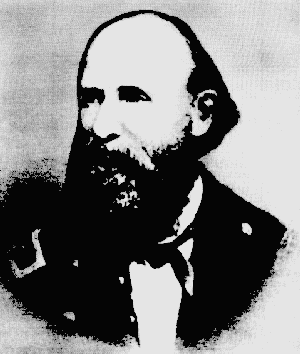
In his concluding Note to the Revelations concerning the Communist Trial in Cologne Marx writes: “In the Civil War in North America, Willich showed that he is more than a visionary.”
Wilson, Theodore Woodrow (1856-1924)
President of the USA, 1913-1921. Brought the USA into the First World War in 1918. Advocate and founder of the League of Nations.
Winstanley, Gerrard (1606-1660)
A leader of the Levellers during the English Revolution.
Born in Wigan, Lancashire, the son of a grocer. He moved as a youth to London, where he became an apprentice and ultimately a member of the tailors' guild. The English Civil Wars, however, disrupted his business, and Winstanley was compelled to move back to his native district. In 1649, Winstanley and his followers took over vacant or common lands in Surrey, Buckinghamshire, Kent, and Northamptonshire and began cultivating the land and distributing the crops without charge to their followers. In 1650 landowners sent hired thugs to beat the Diggers and destroy their colony, and the colony was abandoned.
Winstanley continued to advocate the redistribution of land. In 1652 he published The New Law of Freedom, in which he argued that the Christian basis for society is where property and wages are abolished. In 1660 he moved to Cobham where he joined the Quakers. It is believed that Gerrard Winstanley later worked as a cloth merchant in London.
See the Gerrard Winstanley Archive.
Wischnewetsky, Florence Kelley (1859-1931)
American social reformist. She translated Engels' The Condition of the Working Class in England in 1844 into English.
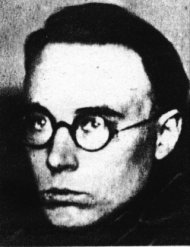
Wittfogel, Karl August (1896-1988)
Historian noted for his studies of ancient China, born the son of a Lutheran schoolteacher in September, 1896 in Woltersdorf, Germany. He was involved in German radical political and social movements at an early age. He joined the German Youth Movement, and in 1917 he was drafted into the German Army Signal Corps. In November, 1918, he joined the Independent Socialist party and two years later, became an active member of the German Communist Party (KDP). He was a playwright in his youth and wrote several essays and novels with a Communist theme. In 1920-1921, he was a high school teacher in Tinz, and studied at Frankfurt University under Carl Grünberg who was to be Director of the Frankfurt Institute for Social Research, published his first analysis of ancient Chinese society in 1926 and gained his PhD in 1928 and was invited to join the Institut for Social Research in Frankfurt. Wittfogel's first wife, Rose Schlesinger whom he married in 1921, also took up a position as librarian at the Institut.
Wittfogel, in his paper Geopolitics, Geographical Materialism, and Marxism, criticized those who suggested Marx did not fully examine the role of nature in social development, but criticised the theories of some bourgeois historians who assigned nature a determinant role in the formation of social systems. He believed that geographical factors, such as location, race, soil, physical terrain and climate played a secondary role in determining social structure. He drew on the categories of huamnity, nature, labor and production as conceived by Orthodox Marxism, and viewed “geopolitics” as unscientific and worthless.
In 1931, the Institut published Wittfogel's Economy and Society in China, after which he abandoned scholarly work to devote himself to political work against the Nazis. However, the Nazi triumph placed him in great danger. Trying to escape Germany, he was arrested and sent to prison and concentration camps. His second wife, Olga Lang (originally Olga Joffe, herself later an expert on Chinese affairs, whom he married in 1933) worked to secure his release, as did R. H. Tawney in England and Karl Haushofer in Germany. Wittfogel was freed in November 1933, and emigrated to England. In 1934, he went on to the United States where he became a naturalized citizen in 1939. He rejoined other exiled members of the Institut and taught at the University of Washington and Columbus University, travelling frequently to China during the period 1935-39.
As Professor for Chinese history at University of Washington in Seattle, he published Oriental Despotism: A Comparative Study of Total Power in 1957. The book examines the origins of complex societies and states. Historical in nature, the book identifies the management of water as a method by which the Chinese emperors to exercised power. He designated this type of ancient societies as “hydraulic societies.” He thought that the development of Egypt, Mesopotamia, India, China and Pre-columbian societies had been blocked because of the need to irrigate vast surfaces for agriculture. Water control and distribution had spawned authoritarian centralized empires and sprawling bureaucracies, both deeply hostile to change. Western Europe was free of such limitations and was thus better able to adapt to changing pressures.
Following the Nazi-Soviet Pact, in 1939, Wittfogel became hostile to the Communist Party and after World War Two, he became an outspoken opponent of both the Russian and Chinese governments.
At 91, Karl Wittfogel died leaving behind his third wife Ester Goldfrank, a renowned anthropologist who had married Wittfogel in 1940.

Wittgenstein, Ludwig (1889-1951)
Austrian philosopher and logician, founder of Analytical Philosophy, attempted to extend Bertrand Russell and Alfred Whitehead's ill-fated attempt to reduce all of mathematics to a single, exhaustive and non-contradictory logical system to philosophy as a whole by means of a “logically perfect" or “ideal" language, which simply excluded those concepts which could not be fitted into the “perfect" language. After World War One, his thinking took a new track, in which he now focussed more or less on the impossibility of the task he had previously been absorbed with.
The son of a wealthy Austrian industrialist, he was educated at home until the age of 14, and later studied mechanical engineering in Berlin and went on to the University of Manchester, to join a reaearch team in aeronautical engineering, where he was involved in advanced propellor design, and it was this work that aroused his interest in mathematics, and soon led him to problems of the foundations of mathematics. Abandoning engineering in 1911, he went to Cambridge to study logic with Bertrand Russell.
After a couple of years at Cambridge, Wittgenstein went to live in seclusion in Norway, working on logic. On the outbreak of World War I, Wittgenstein enlisted in the Austrian army and was sent to the Italian front. Throughout the war, Wittgenstein continued to work on problems of logic and philosophy. When he was taken prisoner at the end of the war, he had the completed manuscript of Tractatus Logico-Philosophicus, which he sent to Russell who managed to get it published in 1921.
The Tractatus is a series of remarks on language dissecting the many shades of meaning and exploring the limitations of what can be said and what can be understood. Wittgenstein proposed to solve this problem by viewing propositions as “pictures of situations in the world” made up of signs that had to be correlated with simple elements of reality in order to understand the connection between the words and the reality they referred to. Wittgenstein then aimed to make a logical analysis on the basis of the logical form of these signs and the corresponding logical forms of the elements of reality that they signified. The key to this analysis had to be the uncovering of the particular logical form common to both reality and language, which made the correlation possible. Wittgenstein held that, on the bais of logical considerations, this common logical form cannot itself be represented.
Feeling that the Tractatus had exhausted his contributions to philosophy, Wittgenstein became a school teacher, working in various villages in Austria, only occasionally meeting with other philosophers, particularly those of the Vienna Circle; he became very depressed and frequently thought of suicide.
In 1929, Wittgenstein returned to lecture at Cambridge, where the notes taken by his students, gradually came to build a considerable reputation for him. Until his death in 1951, Wittgenstein continued to feel himself an outsider, and always regarded his own work as unsatisfactory and incomplete, but he now wrote prodigiously, and his magnum opus, the Philosophical Investigations, published only after his death, is highly regarded to this day.
In this later period of his work, Wittgenstein came to reject his former conception, holding rather that there is no unity hidden in the diversity of language, and his lectures ruthlessly break down and destroy every attempt to generalise or say something definite or provable or rule-governed about language; the most that could be said about a number of things that in some way were deemed to fall into the same category was that there was a “family resemblance”, and the only meaning in the connection between words and concepts is their connection to human life.
Further Reading: Lectures in Philosophy. By way of contrast see Carnap's Theories and Nonobservables.